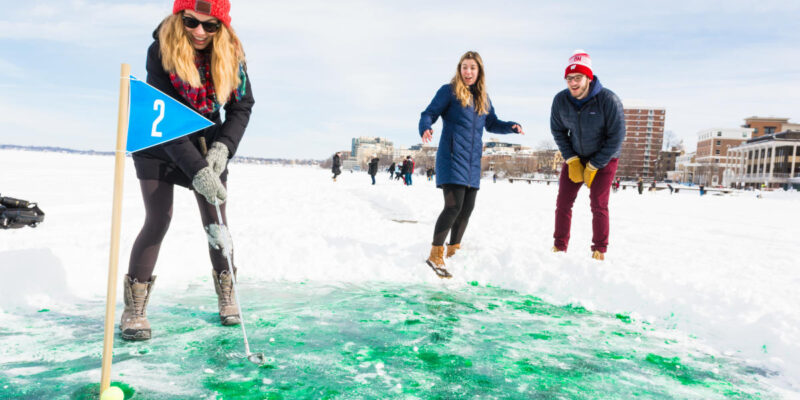In the Northern United States, such as Wisconsin people experience cold winters having snow. The state’s climate varies from region to region, but in general, Wisconsin winter predictions are characterized by the following:
- Cold Temperatures: Often, winter temperatures in Wisconsin are below freezing. Winter averages from the teens (°F) to low 30s daytime highs (0°F to low 2°C), and in summer comma.
- Snowfall: Winter in Wisconsin leads to a lot of accumulations. The northern sections of the state usually have more snowfall when compared to areas situated in the southern region. In an average winter, although the amount of snow varies throughout the northern half of Alaska some areas can pick up over 100 inches (250 cm) per year.
- Lake Effect Snow: Lake-effect snow is probable in areas near the Great Lakes, especially to the east. This area experiences heavy snowfall because of cold air that passes over the warmer waters in the Great Lakes.
- Icy Conditions: There is also icy weather in Wisconsin, especially when the temperatures are around freezing. This will result in slick roads and walkways.
- Winter Sports: For instance, winter in Wisconsin is characterized by a considerable amount of snow – this creates an enabling environment for such activities as skiing, riding the snowboard, ice-skating, or doing moto-sledding. Outdoor winter activities are great in the state.
- Shorter Daylight Hours: Unlike the south, Wisconsin as well as many of the northern states experiences shorter daylight hours during the winter with even early sunsets.
- Wind Chill: the wind chill factor can make the winter weather feel even harsher. Keep warm to protect yourself against freezing and even bear in mind that one may get frostbites and hypothermia.
- Variable Weather: Winter weather is diverse, from very cold to stormy or relatively mild. It is necessary to continuously update oneself on weather forecasts and advisories.
The climate can differ within the state itself owing to the vastness and divergent topography. Cities such as Superior and Ashland in the northern parts of Wisconsin experience colder and snowier winters than southern cities like Milwaukee and Madison. The winters may be relatively warmer in the western part of the state by the Mississippi River as opposed to eastern regions by Lake Michigan.
Wisconsinites should wear warm clothing, drive carefully in snow and icy conditions, and use proper safety to keep warm.
To contact a dependable snow removal company, please click on Earth Development Madison WI.












Comments